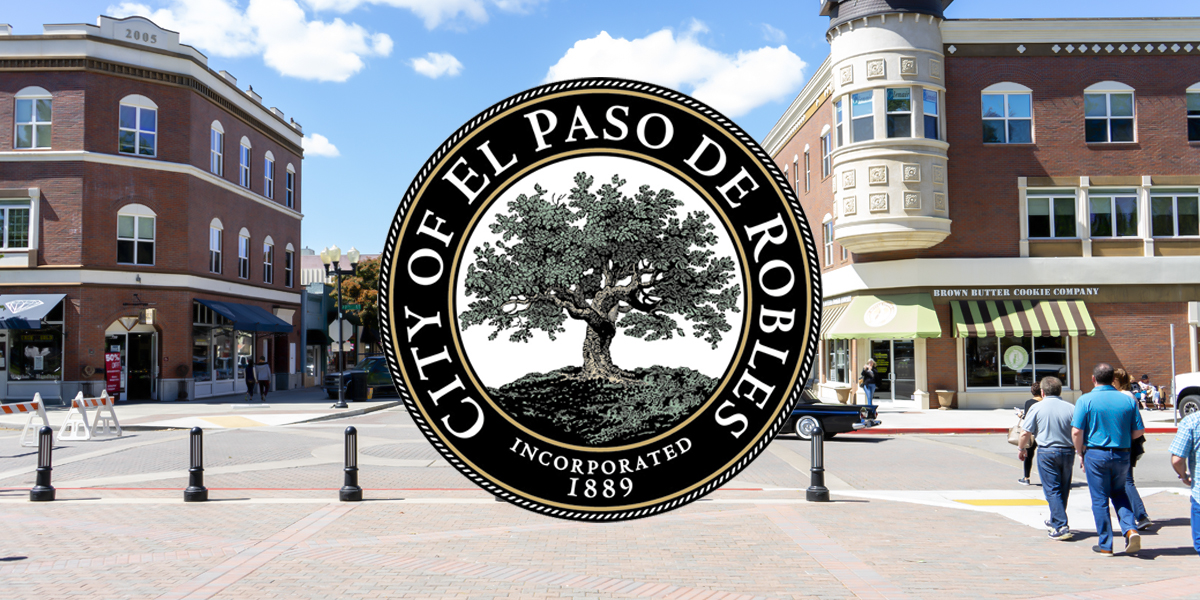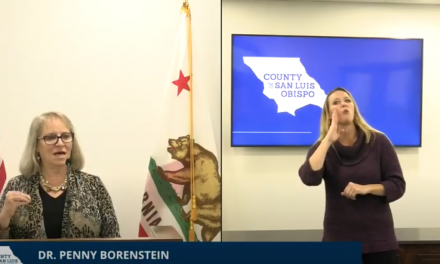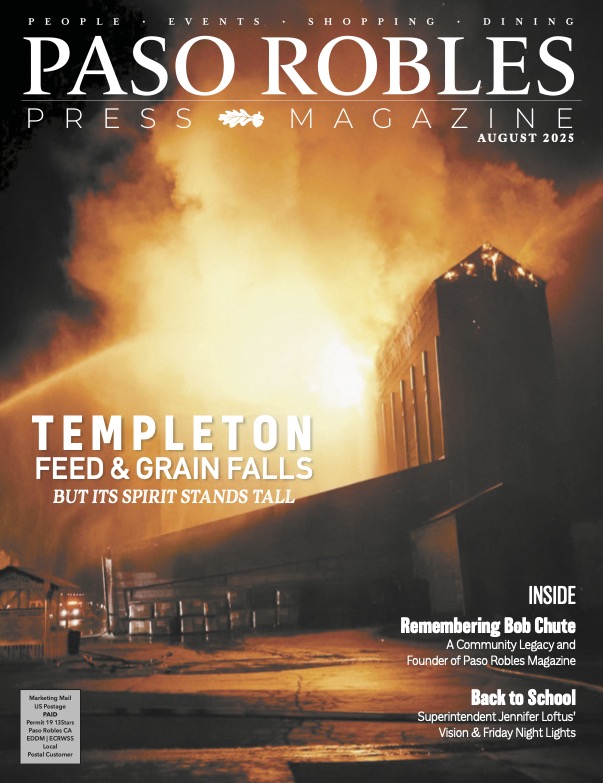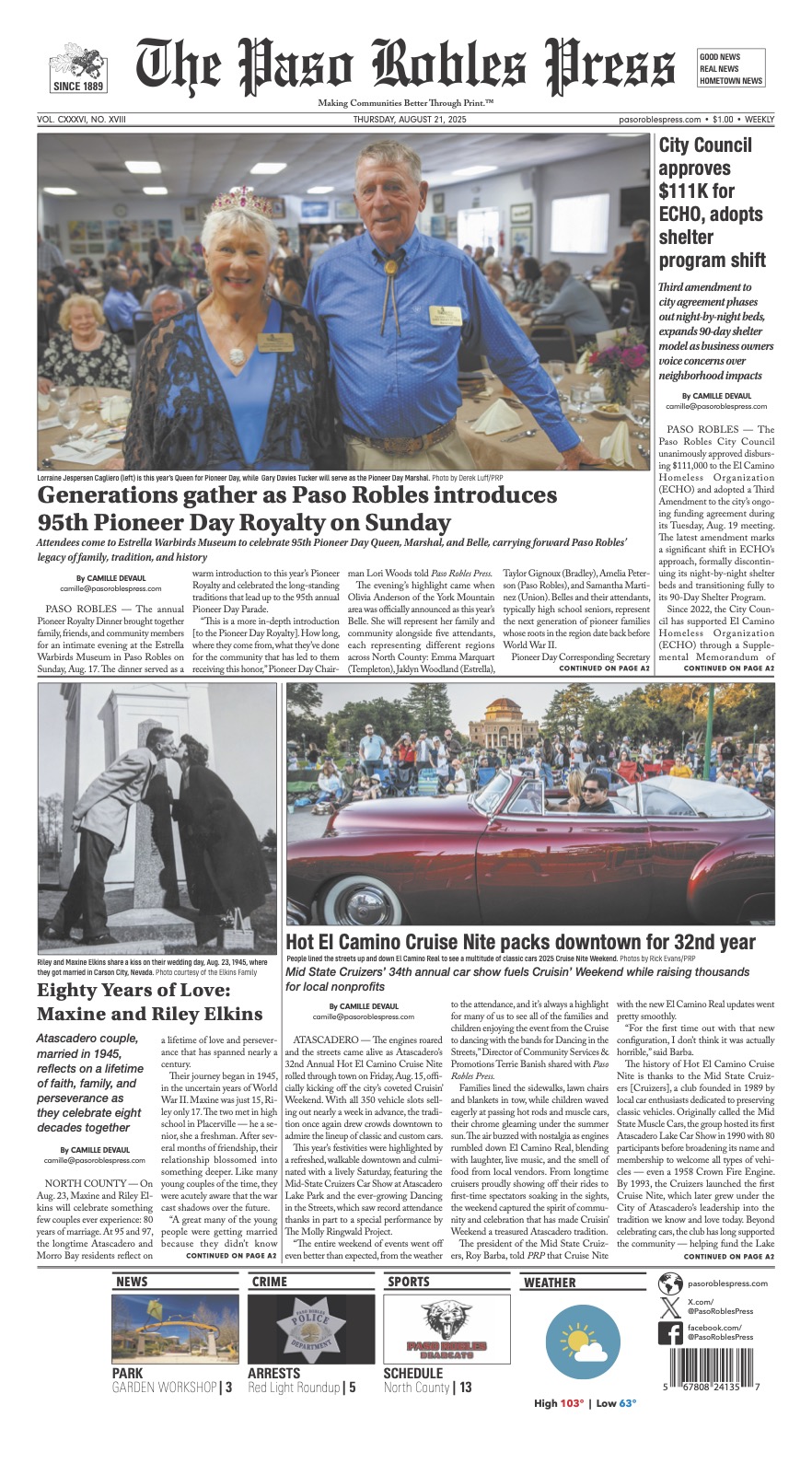PASO ROBLES — The City of Paso Robles took its first steps in joining the ranks of the sound police. The council held a public hearing and voted 5-0 on the first reading of the City’s first-ever noise nuisance laws at the Nov. 5 Council meeting.
The second reading will take place at the next Council meeting on Nov. 19. According to staff, the ordinance “will provide measurable standards for allowed noise levels, which can be enforced to eliminate noise problems affecting the community.”
The state of California mandated that cities create a general plan that describes the vision, goals and objections for their development. The plan must include eight “elements” one which deals with noise. Noise elements guide developers and city planners to help minimize how nuisance sound impacts the community. A noise ordinance differs by giving police the ability to enforce sound level standards set by the City.
Assistant City Planner Darcy Delgado said that the changes in the City and a growing number of complaints prompted the making of an ordinance.
“What we’ve experienced since 2003 is an increase in complaints which most of them generated around concerts and tourism,” Delgado said.
The City contracted Bollard Acoustical Consultants, Inc. to take sound surveys throughout the township. The sound test showed that the background ambient noise has increased with Paso’s development. Changes to the noise element were needed because the ambient traffic noise has grown over the years which has increased the allowable levels based on current ambient traffic noise levels.
Delgado said that the planning department sought to establish reasonable laws that take into consideration the quality of life for Paso Robles residents without stifling the City’s economic growth.
“It’s been the City’s approach to protect the quality of life while balancing that with the [City’s] economic development,” Delgado said.
The new noise ordinance will limit the allowable noise level at different times of day for different zoning districts such as residential, commercial and industrial. The maximum allowable noise levels are typically higher during daytime hours and lower during nighttime hours, according to the staff report.
Delgado said the ordinance does contain a construction exemption during normal operating hours from 7 a.m. to 7 p.m. However, time-sensitive construction activities such as pouring concrete would be allowed to begin before 7 a.m. Also, businesses that receive noise complaints but were already operating before the ordinance is set in place are given a year to make the necessary adjustments to comply with the new standards.
Delgado also said that short-term vacation rentals would not be held to a stricter standard but would be treated the same as noise generated by any other residential uses in the city. The City considers residential daytime hours for private parties as 7 a.m. to 10 p.m. Sunday through Thursday and extends to midnight on Friday and Saturdays.
The California Mid-State Fair would not be governed by the City’s new ordinance rather the State of California has authority over its operations, staff reported. The City is also declared City buildings and events exempt from the ordinance.
The City still needs to establish enforcement protocols and procedures for the ordinance. The law creates a foundation for enabling police to deal with violations.
In other Council news, the projected cost of a county animal shelter jumped from $13.1 million to $20.3 million. The Council passed the cost increase for the City of $200,913 per year for 25 years from the original memorandum of agreement of $139,097. The motion passed 5-0 as part of the consent calendar.














